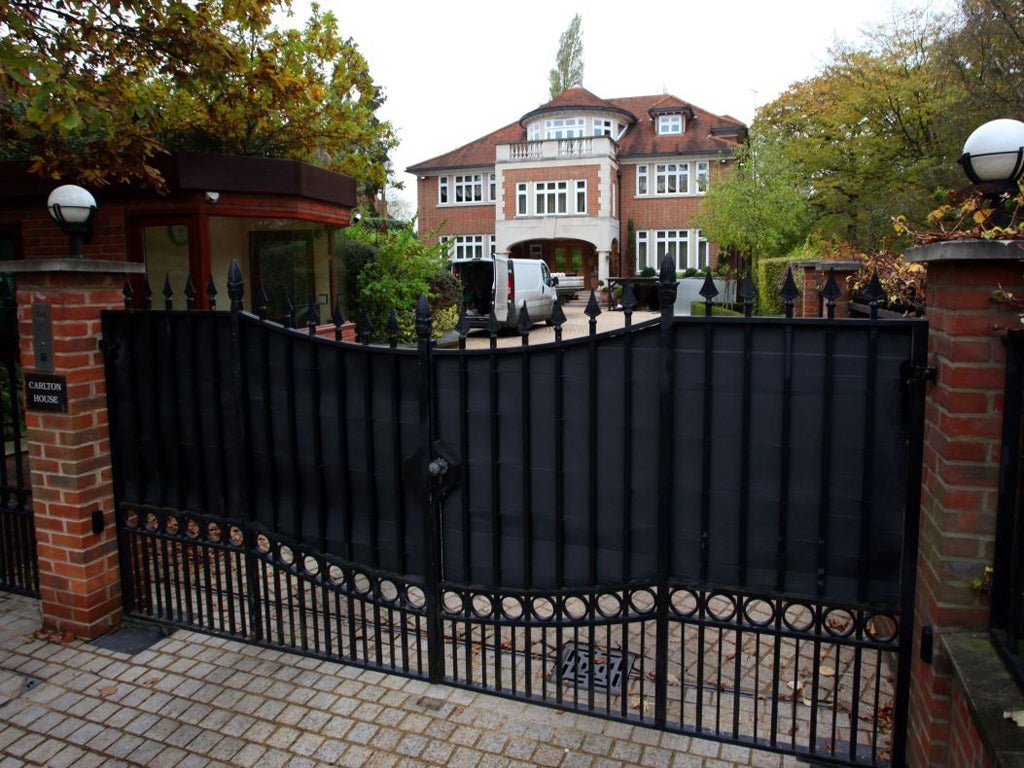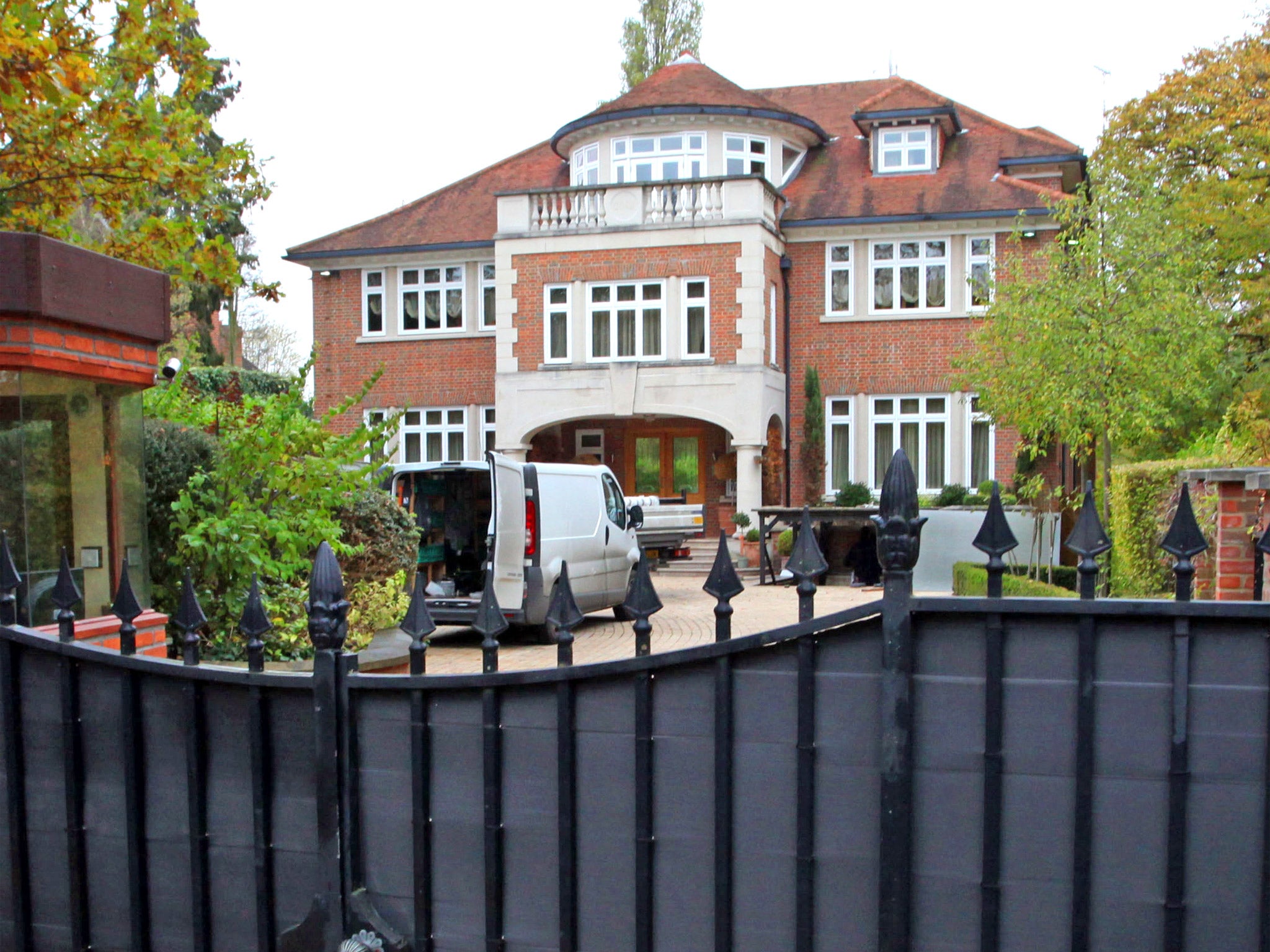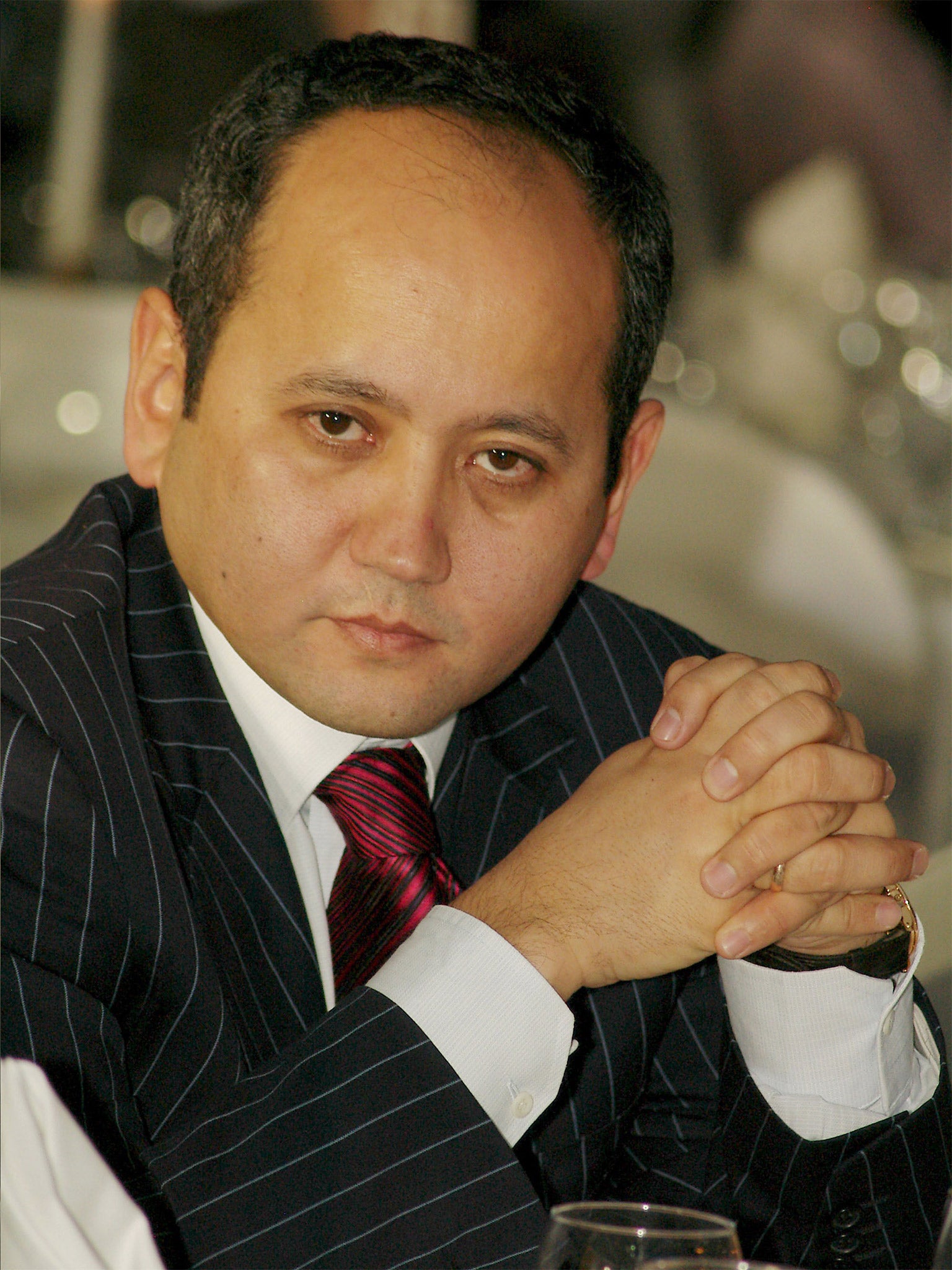London property boom built on dirty money
Billions stolen through corruption flood into capital’s broken housing market

Your support helps us to tell the story
From reproductive rights to climate change to Big Tech, The Independent is on the ground when the story is developing. Whether it's investigating the financials of Elon Musk's pro-Trump PAC or producing our latest documentary, 'The A Word', which shines a light on the American women fighting for reproductive rights, we know how important it is to parse out the facts from the messaging.
At such a critical moment in US history, we need reporters on the ground. Your donation allows us to keep sending journalists to speak to both sides of the story.
The Independent is trusted by Americans across the entire political spectrum. And unlike many other quality news outlets, we choose not to lock Americans out of our reporting and analysis with paywalls. We believe quality journalism should be available to everyone, paid for by those who can afford it.
Your support makes all the difference.Billions of pounds of corruptly gained money has been laundered by criminals and foreign officials buying upmarket London properties through anonymous offshore front companies – making the city arguably the world capital of money laundering.
Some sources claim it has skewed developers towards building high-priced flats and houses rather than ones ordinary people can afford. While corruption and tax evasion are likely to be the biggest sources of the illicit money, drug dealing, people trafficking and sanctions busting are also common, police say.
TI’s research, which includes previously unreleased internal figures from the Metropolitan Police Proceeds of Corruption Unit, found that 75 per cent of properties owned by people under criminal investigation for corruption are held through secret offshore companies.
Anti-corruption activists including Boris Nemtsov, the Russian opposition figure murdered in Moscow last Friday, have repeatedly expressed frustration that the UK does so little to stem the flow of money stolen from their countries.
Robert Barrington, executive director of TI, said: “This has a devastating effect on the countries from which the money has been stolen and it’s hard to see how welcoming the world’s corrupt elite is beneficial to communities in the UK.”
Over £180m of UK property has been investigated by police in the past decade, but this is likely to be only a small proportion of the actual amount, the report says. UN figures suggest only 1 per cent of money laundering flows are detected.
Detective Chief Inspector Jon Benton, director of operations at the Proceeds of Corruption Unit, said: “Properties that are purchased with illicit money, which is often stolen from some of the poorest people in the world, are nearly always layered through offshore structures.
“In nearly all the grand corruption cases we investigate, we find – what we suspect is – proceeds of corruption being used to purchase high-value properties.”

Companies set up in the Crown Dependencies and British Overseas Territories such as Jersey, British Virgin Islands and Gibraltar are the preferred option for concealment of corrupt property purchases.
More than a third of company-owned London houses are held by effectively anonymous firms in the British Virgin Islands. Jersey companies own 14 per cent and the Isle of Man and Guernsey 8.5 per cent and 8 per cent.
Mr Benton said: “The lack of access to beneficial ownership information about offshore companies that hold property in the UK is a major barrier for our investigations.”
The TI report highlights how little reporting of potential corruption there is from estate agents. Along with financial services firms, lawyers and art dealers, they are designated as “gatekeepers” who must file reports to the National Crime Agency if they see anything suspicious.
However, property agents only filed 0.05 per cent of all such Suspicious Activity Reports last year – a mere 179 across the whole of the UK.
On the bling: The £14m mansion no one wants to buy
Not for nothing is The Bishops Avenue in north London known as “billionaires’ row”.
The average selling price over the past three years of the vast mansions that dot this suburban street was £16m. The most recent sale registered on the Zoopla tracking website was for £33.7m.

Yet one property, Carlton House, has remained unsold for years at £14m. Perhaps buyers are put off by the 10-person Turkish bath, the flashy 50ft ballroom or the place’s passing resemblance to a souped-up Barratt home.
More likely is the fact that this is part of the chattels of the alleged money launderer and fraudster Mukhtar Ablyazov. The property is being sold to repay the Kazakh bank BTA part of the $6bn (£3.9bn) it claims he embezzled – a charge that he denies.
Mr Ablyazov, currently awaiting extradition in France to Russia, Ukraine and Kazakhstan, claimed the property was not his, and that he was only renting it. But the High Court in London, after scrutinising the network of offshore companies used to buy it, concluded he was the buyer.
As with most such cases, the hugely complex task of tracing the owner was undertaken by a law firm working on private court actions.

Money laundering is rarely prosecuted by the UK criminal authorities. However, a rare criminal action was taken against James Ibori, a Nigerian politician who stole millions of pounds of oil revenues from Delta State, where he was the governor.
He was found guilty of fraud and money laundering in the UK criminal courts in 2012. A massive police investigation here found that, using offshore companies in secretive locations, he had bought a host of London properties including a six-bedroom house with an indoor pool in Hampstead for £2.2m and a flat opposite the nearby Abbey Road recording studios. The court heard he also owned a property in Dorset, a £3.2m mansion in South Africa and further real estate in Nigeria.
Saadi Gaddafi, the playboy son of the Libyan ruler, had his £10m Hampstead Garden Suburb mansion seized as the post-revolutionary government there sought to capture the billions of dollars believed to have been plundered by his family and laundered abroad.
As would be expected, his ownership of the eight-bedroom house, featuring a suede-lined private cinema, was not simple to prove. He had bought it in the name of a British Virgin Islands company with the typically meaningless name Capitana Seas Ltd.
Join our commenting forum
Join thought-provoking conversations, follow other Independent readers and see their replies
Comments